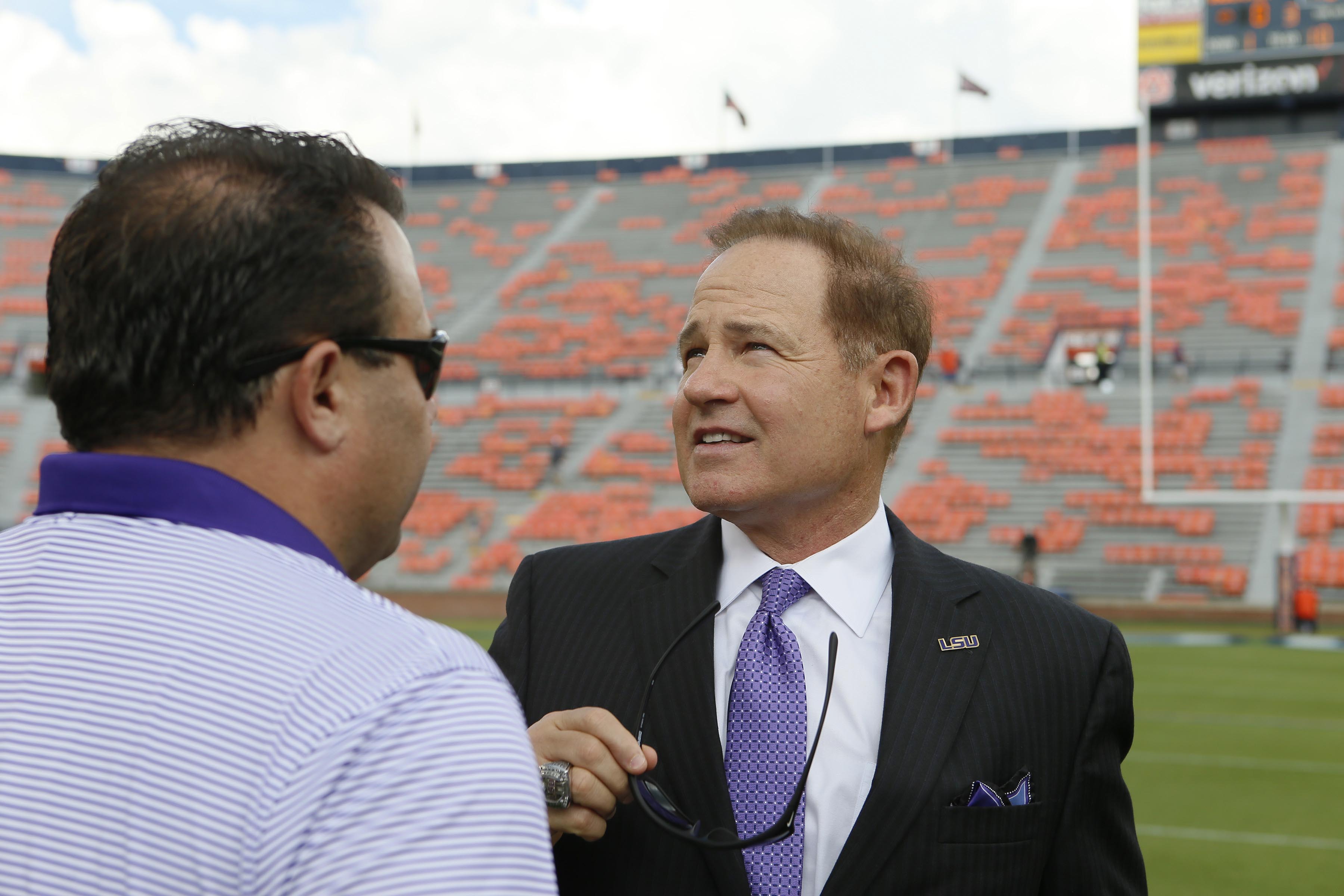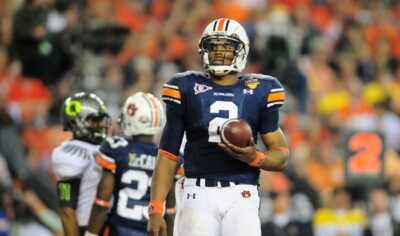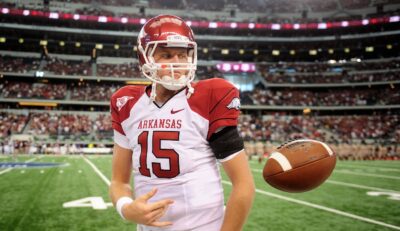
The conventional wisdom is that nobody enjoys a firing. The truth is that fans of each SEC team have enjoyed a few. Whether it’s lousy recruiting, horrible X-and-O work, or just presenting a lousy image for the public, there are head coaches who need to go.
As we’re apparently entering that season in the SEC, we’re grading each SEC coach firing in the last decade (since 2008, but only for schools then in the SEC). We’re grading it on the basis of what fans would think today, how the fired coach has done since, how the next hire by the firing school worked out, and whether the perceived need to fire the coach was legitimate or perhaps a little quick, an overreaction.
We’re not splitting hairs about the term firing — if a coach retires or leaves to take a perceived better job, we’re not counting it. If it’s “a mutual decision,” we probably are. Without further introduction, our grades of SEC coach firings in the last decade.
SEC West
Bobby Petrino, Arkansas: C-
The one aspect that is clear was that Petrino, who was 34-17, left Arkansas little choice but to fire him, after he was caught in a very public fiasco involving an extra-marital relationship which was also tied into the athletic department.
That said, Arkansas has not approached the 10-win seasons that Petrino delivered in 2010 and 2011. Given some of the public malfeasance issues in which other universities chose to stand by their man, there are undoubtedly some who would accept Petrino’s off-field distractions and gigantic ego for a return to national relevance.
John L. Smith, Arkansas: A
Smith was an interim coach who went 4-8 in one season and gave Arkansas no real reason to keep him. Smith has been coaching in NCAA Division II football since, so this one looks pretty solid.
Tommy Tuberville, Auburn: B-
Tuberville went 85-40 at Auburn, including an undefeated 2004 campaign, before getting the axe after 2008, when he went 5-7. In the short term, it went well for Auburn, as it won the 2010 title for Gene Chizik. Tuberville’s post-Auburn record was just 49-39 at Texas Tech and Cincinnati. At the same time, Auburn’s ceiling looks similar to Tuberville’s — he won nine or more games six times in 10 years. In the eight years since, Auburn has reached nine wins only twice.
Gene Chizik, Auburn: C
Chizik was 33-19 in four years at Auburn. He won the 2010 title, but two years later, after a 3-9 season, he was gone. Chizik hasn’t coached elsewhere, but other than his first year, 2013, Gus Malzahn hasn’t topped the eight wins that Chizik had in three of his four seasons. Not to mention that Chizik won a title, only to be run out of town less than 24 months later.
Les Miles, LSU: C
This one is hard to grade, because we’re less than a full season into the Ed Orgeron era. But to recap, Miles was 114-34 at LSU, including the 2007 national title and an appearance in the 2011 title game. His last two full seasons were 8-5 and 9-3, and LSU was tumbling a bit in national prestige. It’s very much unclear whether Orgeron is a long-term answer or whether Miles will re-surface in another job and make LSU look foolish.
Houston Nutt, Mississippi: A-
Nutt was dumped by Arkansas despite a 75-48 mark after 2007, and went next to Ole Miss, where he had 9-4 seasons in 2008 and 2009 but was fired after 2011 with a 24-26 overall mark. It’s hard to defend a coach who goes 6-18 in his last two seasons, and the Rebels did well enough under Hugh Freeze to justify higher expectations. Frankly, the grade would be an A except for Freeze’s NCAA issues. Speaking of which …
Hugh Freeze, Mississippi: B
Freeze was 39-25 in five seasons in Oxford before he was hurriedly fired after a scandal involving calling an escort service with his university-issued phone. That story has been incredibly confusing, but as there are also NCAA issues that have still not been fully discussed, we’ll try to cut the Rebels’ administration the benefit of the doubt. As Ole Miss is struggling through a poor season with an interim coach, it’s yet unclear whether their long-term solution will work out, or whether Freeze will re-surface and star elsewhere.
Sylvester Croom, Mississippi State: A
Croom was 21-38 at State, and was ditched after 2008 in favor of Dan Mullen. Croom reached a bowl game once in five years, while Mullin has failed to do so only in his first season in Starkville. Croom has been an assistant in the NFL, but State was wise to aim higher.
SEC East
Will Muschamp, Florida: C-
Florida was his first head coaching job, and the sometimes out-of-control young Muschamp was 28-21 in four seasons before he got the axe. The ensuing struggles of Jim McElwain and the decent job Muschamp is doing at South Carolina suggests that maybe Florida jumped the gun. Speaking of which …
Jim McElwain, Florida: C
McElwain is 22-12 at Florida, winning the SEC East in 2015 and 2016. His offenses have been brutal, and the recent issue of questionable “death threats” did little to help. Florida is justified to aim higher, but it’s worth noting that Urban Meyer’s glory days are almost a decade away. McElwain felt like an iffy choice to replace Muschamp, and if UF doesn’t aim higher in their coaching search, they may well be back here again in 3-4 years.
Mark Richt, Georgia: A-
One of the most controversial firings in this column, Richt went 145-51 but never delivered a national title to UGA. He did win the SEC twice, and the East six times. His last three seasons were 8-5, 10-3 and 9-3. Richt has moved on to Miami, where he has done well, but so has Kirby Smart in replacing Richt. This may have been the rare time when a coach had just grown stale and both the coach and the previous employer benefited from a change.
Joker Phillips, Kentucky: A
In three seasons at Kentucky, Phillips, who was 13-24, took the team from appearing in four straight bowl games (a fifth came in his first year) to 2-10. The performance of Mark Stoops and Phillips’s job-hopping since have both made clear that he wasn’t the man for the difficult Kentucky job.
Shawn Elliott, South Carolina: A
Elliott, like John L. Smith, was only intended as an interim coach, and his 1-5 mark, including a loss to the Citadel, kept things securely on that level.
Phil Fulmer, Tennessee: D
Fulmer was 152-52 at UT, including the 1998 national title, another SEC title, and four more East division crowns. He did have two five-win seasons in his last four, with 9-4 and 10-4 marks in between. Since UT hasn’t eclipsed 9-4 since Fulmer, the rationale in driving an incredibly popular coach into retirement feels thin. Of course, had UT chosen better coaches to follow Fulmer, this decision might look better. But instead …
Derek Dooley, Tennessee: A
One year of Lane Kiffin and an embarrassing departure begat Dooley, a coach who had a losing record at his previous job and who went 15-21 at UT. While the Butch Jones years have had problems, they’re a veritable Camelot compared to the fumbling, bumbling days of Dooley. Three years was plenty to see that this wasn’t going anywhere.
Butch Jones, Tennessee: B+
Jones is 33-26 at UT, but without a division title, much less an SEC or national title. He has lost control of his program, and his firing feels inevitable after five seasons. The real question is can Tennessee do better. When Fulmer left, that would have been a certainty. But a decade of mediocre play won’t do Jones’s successor any favors.
Robbie Caldwell, Vanderbilt: A
Caldwell was an interim replacement after the surprising resignation of Bobby Johnston. He was 2-10, and Vandy followed him with James Franklin, which was a clear upgrade.
Joe Cox is a columnist for Saturday Down South. He has also written or assisted in writing five books, and his most recent, Almost Perfect (a study of baseball pitchers’ near-miss attempts at perfect games), is available on Amazon or at many local bookstores.







